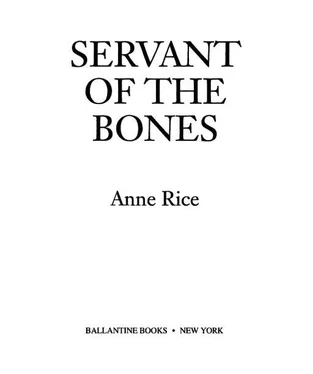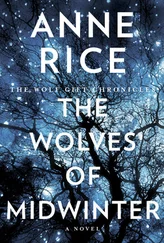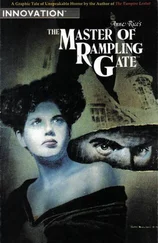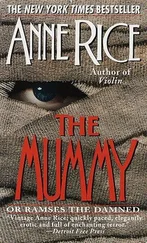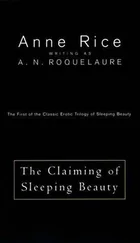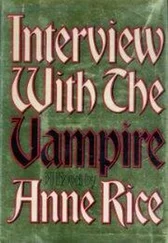“Do you?”
“I want to know why I am here now,” I went on, holding firm. “I don’t accept your fervent prophecies and proclamations. Did you kill Esther? Did you send those men to kill her?”
Gregory seemed torn. He reflected. I could read nothing from him. “I didn’t want for her to die,” he said. “I loved her. The greater good called for her death.”
Now this was a lie, a brittle, technical lie.
“What would you do if I told you, yes, I did kill Esther?” he said. “For the world, I killed her, for the new world that will rise from the ashes of the dying world, the world that is killing itself with small men and small dreams and small empires?”
“I swore I’d avenge her death,” I said. “And now I know you’re guilty. I’ll kill you. But not now. When I want to.”
He laughed. “You kill me? You think you can?”
“Of course,” I said. “Remember what the Rebbe told you. I have killed those who have called me.”
“But I didn’t call you, don’t you see, it was the plan, it was the world! It was the design! You were sent to me because I need you, and can use you, and you will do what I will that you do.”
It was the world . Those were the very words I’d said to myself in desperate hope. But was it to be Gregory’s world?
“Surely you must help me,” he said. “I don’t need to be your Master. I need you! I need you to witness and understand. Oh, but this is too remarkable that you came alive to see Esther murdered, and to kill those three, you did say that to me, that you killed those three.”
“You loved Esther, didn’t you?” I asked.
“Oh, yes, very much,” he said. “But Esther had no vision. Neither does Rachel. That’s why you’ve come. That’s why you were given to our people, to my grandfather’s father, don’t you see? You were meant to appear before me in all your glory. You are the witness. You are ‘He who will understand everything.’ ”
I was puzzled by his words. Plan, scheme, design. “But what is it I am to witness?” I asked. “You have your church. And what does Esther have to do with it?”
He thought a long moment, and then he said with innocent candor:
“Of course, you were meant for me. No wonder you struck down others.” He laughed. “Azriel, you’re worthy of me, don’t you see? This is what’s so supremely beautiful, you’re worthy of me, of my time, my brilliance, my effort. We are on a par. You are a prince of ghosts, I suspect. I know it.”
He reached to touch my hair.
“I’m not so sure.”
“Hmmm, a prince, I’m sure, and you’ve been sent to me. All those old men; they kept you, passed you down through the generations. It was for me.”
He seemed almost moved to tears by his own sentiment. His face was soft and radiant and confident.
“You have the pride and decisiveness of a king, Gregory.”
“Of course I do. What does the Master usually say to you, Spirit?” he asked. “What do you remember?”
“Nothing,” I said adamantly. A lie of my own. “I wouldn’t be with you if I could,” I said. “I stay with you now because I’m trying to remember and to know. I should kill you now. That would probably be like your precious Alexander when he cut the Gordian knot.”
“No, that won’t happen,” he said calmly. “That cannot possibly be meant. If God wanted for me to die, anyone could do it. You don’t realize the scale of my dreams. Alexander would have understood.”
“I am not yours,” I said. “I know that much. Yes, I want to know the scale of your dreams, yes. I don’t want to kill you without understanding why you had Esther murdered. But I am not yours. Not meant for you. Not necessarily meant…for anything.”
Somewhere the mother was crying again. That I’m sure I could hear. I turned my head.
“Do as I say,” he said, touching me again, clamping his hand on my arm.
I pulled away. I hurt him a little.
My strength had gone past exhilaration. I was restless. I wanted to walk, to touch things. I wanted to touch these couches of velvet, and run my hand on the marble. I wanted simply to look at my hands. I was holding utterly fast. I wasn’t sure that I could dissolve now if I wanted to.
It was a strange feeling, to be so strong, and not to know if the old tricks would work. But then I had only lately made myself Esther. I was tempted…
…But no, this was not the time.
I glared at the bones. I reached down and covered up the bones with the fragile lid. There lay the Sumerian letters for me to read.
“Why did you do that?” he demanded.
“I don’t like the sight of the bones,” I said.
“Why?”
“Because they’re mine.” I looked at him. “Somebody killed me. Someone did it against my will. I don’t like you either, necessarily. Why should I believe you that I am something worthy of you? What is your scheme? Where is your Alexandrian sword?”
I was sweating. My heart was pounding. (I didn’t really have a heart but it felt like it was pounding.) I peeled off this coat, admiring my own handiwork as I did it. I could see how different it was from his clothing, though modeled completely upon it.
Perhaps he noticed the difference too.
“Who sewed these clothes for you, Azriel?” he ordered. “Were they done by invisible angels on invisible looms?” He laughed as if this was the most preposterous idea.
“You’d better think of clever things to say. I may not kill you, but I very well may leave you.”
“You can’t! You know you can’t!”
I turned my back on him. Let me see what else I could do.
I looked at the walls, the ceiling, the peach silk of the drapes, and the great tree of life blazing in the carpet. I drew near the window and the air moved my hair. The coolness came down on my skin and on my hair.
Slowly, I closed my eyes, though I could still take small steps, for I knew where everything was, and I clothed myself, envisioning a robe of red silk, with a sash of silk, and jeweled slippers. I took her shade of red, wrapped myself in it, and brought the gold to me for the sleeves and for the hem and for the slippers. I was now clothed in her violent red. Perhaps the mothers here mourned in red.
It was conceivable.
I heard him sigh. I heard his shock. I saw myself reflected in the mirrored panes of the ornate doors, a tall, black-haired youth in a long, red Chaldean robe. No beard, no, no hair on the face. I liked the smooth face. But this would not do, these garments, too antique; I needed freedom and power.
I turned around.
Again, I closed my eyes. I imagined a coat of his cut in this brilliant red but of the finest wool, tailored as his coat was tailored, with buttons of simple and perfect gold, almost pure gold. I imagined the trousers looser and smooth, as a Persian would want them to be, and the slippers I stripped of their embroidery.
Beneath the coat, I drew to myself, against my skin, a shirt like his, only of far whiter silk even than his, its buttons made of gold as well, and round my neck on my chest, beneath the wings of this coat, against the shirt, I brought two full strands of beads which I took from all the opaque stones of the world I loved—jasper and lapis lazuli, beryl, garnet, jade, and ivory. I put amber with this, on these two strings, until I felt the weight against my chest, and then I raised my hand and touched the beads, and when I let my shoulders fall easy, the coat almost closed over this secret bit of vanity, these ancient beads. My shoes I made identical to his shoes, only of the softest cloth, and lined with silk.
He was shocked by these simple magic acts. I had found them easier than ever.
“A silken man,” he said. He said it in Yiddish. “Zadener yinger mantchik.”
Читать дальше
